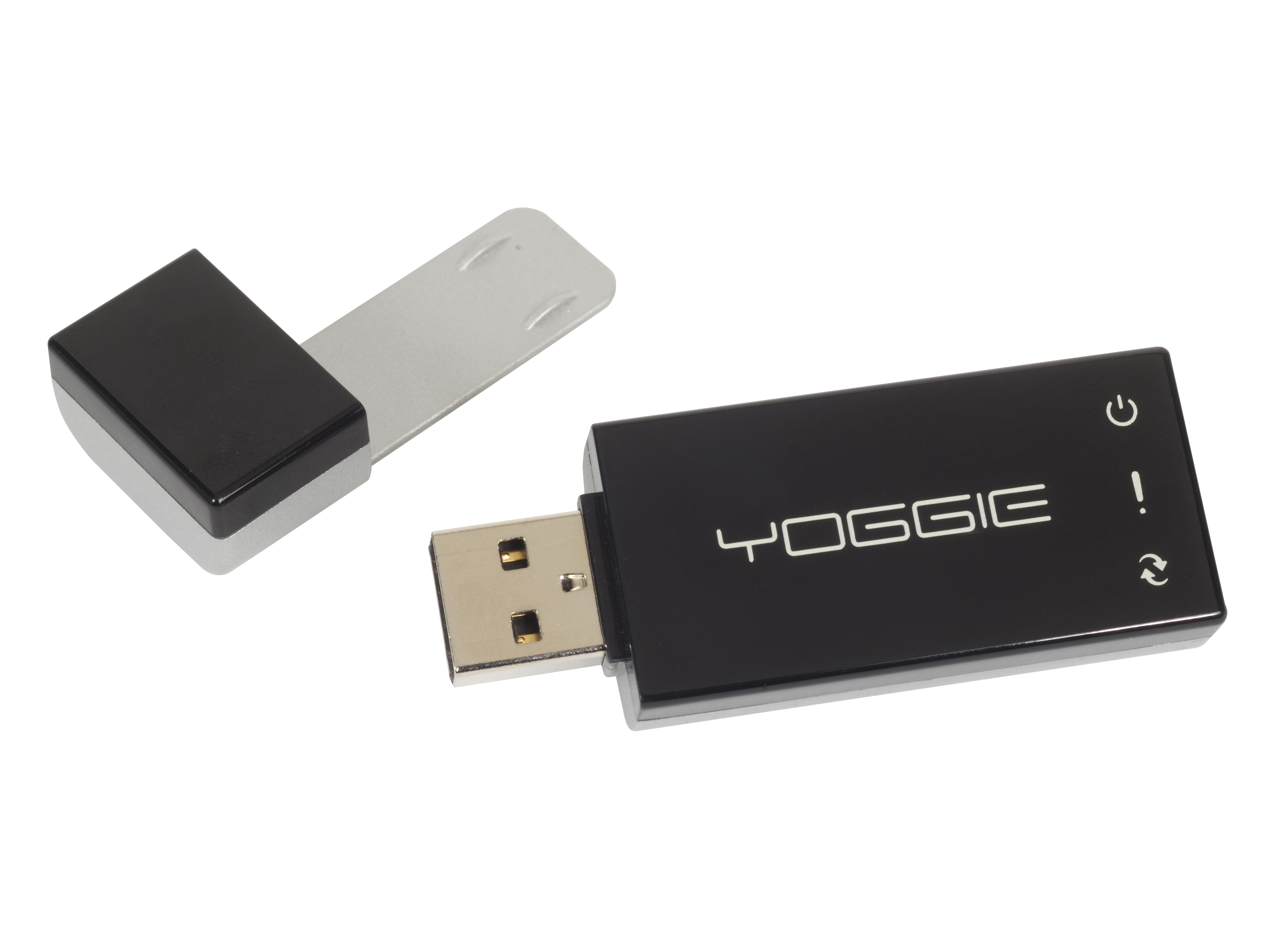TechRadar Verdict
A neat, novel security solution in a surprisingly small package
Pros
- +
Powerful security software
- +
Compact and discreet
- +
Impressive dashboard
Cons
- -
Can't override site blocking
Why you can trust TechRadar
The Yoggie Pico is a miniature computer that does all of the work of your security software, so that your PC doesn't have to. It sounds like an extravagant luxury to have a whole computer dedicated to security work, but the Yoggie is the size of a USB stick, easy to set up and reasonably affordable.
Installation is fast: plug the Yoggie into a spare USB slot, install a driver and register yourself on the Yoggie Web site. Once you've done that, Yoggie's browser-based interface is accessible from an icon in the Taskbar - there's no extra software to clutter up your PC. The interface is well organised and there's an excellent Risk Level dashboard showing how many attacks have been intercepted.
The Yoggie contains a 520MHz CPU and 128MB RAM, which is a powerful specification for the task at hand. The system works by redirecting all network traffic to the Yoggie before it reaches your PC and scanning before passing it on.
It runs using a Linux OS and incorporates anti-virus, anti-spyware, anti-phishing, anti-spam and firewall software. Some of the software is written just for the Yoggie, and some is from Kaspersky. The Yoggie contains two flash memory units, one of which is read-only and holds a clean copy of the OS.
On boot-up this secure copy is transferred to the other flash unit and used at runtime, so even if the Yoggie itself were to become infected, it'll be cleaned next time you restart.
Unnecessary blockage
Our only niggle with the Yoggie is that when it blocks a Web site that's deemed to be a threat, there's no option to proceed to the site against its advice. Generally, though, you won't hear a peep out of the Yoggie, unlike most firewalls that throw up lots of alerts.
The Yoggie's major advantage is that you don't need to run any security software on your PC, which often slows performance. Considering that many of the software-based security packages cost up to £60, the price for this seems reasonable.
If anti-malware software bugs you and you'd like to enjoy the extra security benefits of a hardware solution, then the Yoggie is a sensible purchase.
Tech.co.uk was the former name of TechRadar.com. Its staff were at the forefront of the digital publishing revolution, and spearheaded the move to bring consumer technology journalism to its natural home – online. Many of the current TechRadar staff started life a Tech.co.uk staff writer, covering everything from the emerging smartphone market to the evolving market of personal computers. Think of it as the building blocks of the TechRadar you love today.
